In 40 years of regular visits to Japan, I’ve seen much of the country, but last summer I had the good fortune to explore an area I’d never visited before: Oita prefecture on Kyushu, the southernmost of Japan’s four principal islands. Oita is located in northeastern Kyushu, and is bordered by the mountains of Kumamoto and Fukuoka prefectures on the west and the Seto Inland Sea on the east.
The resort town of Beppu is Oita’s most famous destination. Often called the hot spring capital of Japan, Beppu has the greatest concentration of hot springs in the country. It’s especially famous among domestic visitors for its jigoku, or literally, hells. Some of the most famous hells include the cobalt blue Umi Jigoku (Sea Hell), the deep red Chinoike Jigoku (Blood Pond Hell), and geysering Tatsumaki Jigoku (Waterspout Hell). It’s almost otherworldly to wander among these steaming pools of water that regularly bubble, spew, and spout.
The resort town of Beppu is Oita’s most famous destination. Often called the hot spring capital of Japan, Beppu has the greatest concentration of hot springs in the country. It’s especially famous among domestic visitors for its jigoku, or literally, hells. Some of the most famous hells include the cobalt blue Umi Jigoku (Sea Hell), the deep red Chinoike Jigoku (Blood Pond Hell), and geysering Tatsumaki Jigoku (Waterspout Hell). It’s almost otherworldly to wander among these steaming pools of water that regularly bubble, spew, and spout.
The hot springs are a remarkable sight, but for me, the most memorable part of my visit to Beppu was an immersion in a hot sand bath. For this delight I went to the Beppu Hot Sand Bath facility, an unprepossessing building located in a beautiful setting right on Shoningahama Beach, looking onto Beppu Bay, beside a grove of pine trees.
First I changed into a yukata, a light cotton wraparound robe. Then I was led to a rectangular area about the size of half a tennis court, where fourteen foot-high mounds of sand were arranged in two neat rows. I was led to a spot at the far end of the front row and told to lie down, still clothed in my yukata, in a slight indentation that had been prepared next to the mound, with a wooden neck-rest placed at one end. After I lay down, the smiling attendant took a special shovel-like tool and gently began to cover me with the sand, starting with my midsection and then working down to my feet.
First I changed into a yukata, a light cotton wraparound robe. Then I was led to a rectangular area about the size of half a tennis court, where fourteen foot-high mounds of sand were arranged in two neat rows. I was led to a spot at the far end of the front row and told to lie down, still clothed in my yukata, in a slight indentation that had been prepared next to the mound, with a wooden neck-rest placed at one end. After I lay down, the smiling attendant took a special shovel-like tool and gently began to cover me with the sand, starting with my midsection and then working down to my feet.
Heated by hot spring waters rich in sodium-hydrogen carbonate, the black volcanic sand is said to cure a host of bodily ailments and confer a general sense of well-being. The sand was definitely warm but not over-hot, and at first the sensation was pleasantly reminiscent of childhood trips to the beach, when I and my friends would playfully bury each other in the sand.
As the attendant finished covering my feet and moved up to my chest, the sand felt like a grainy swaddling blanket. Then, as he covered my upper arms and shoulders, the pressure became a bit uncomfortable. When I was fully covered up to my chin, I actually felt some panic. With my arms pinned to my sides under layers of sand, I was suddenly aware of just how vulnerable I was. If a fly landed on my nose, I would be powerless to swat it. If a squirrel squatted on my head, I would just have to endure it.
As the attendant finished covering my feet and moved up to my chest, the sand felt like a grainy swaddling blanket. Then, as he covered my upper arms and shoulders, the pressure became a bit uncomfortable. When I was fully covered up to my chin, I actually felt some panic. With my arms pinned to my sides under layers of sand, I was suddenly aware of just how vulnerable I was. If a fly landed on my nose, I would be powerless to swat it. If a squirrel squatted on my head, I would just have to endure it.
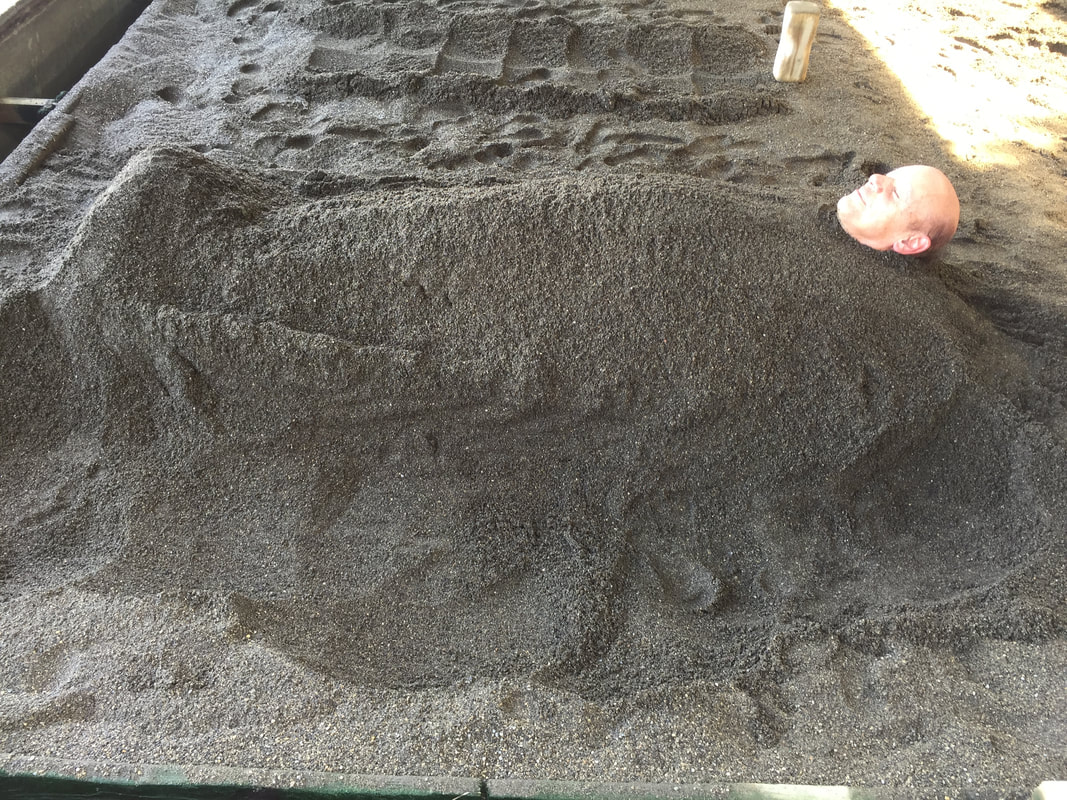
It was at once uncomfortable and illuminating to feel so publicly vulnerable and reliant on the kindly attendant, who at that moment had wandered off – where had he wandered off to anyway? Very soon thereafter he returned and asked if I was OK and said he would dig me out after 15 minutes, and that he would be within earshot if I needed anything before then.
After that, something almost magical happened: I took some deep breaths, and concentrated on feeling the warm weight of the swaddling sand. I breathed in, breathed out; breathed in, breathed out. I looked at the green pines to my left, and the blue sea and sky before me. And then I let go. I abandoned myself to the sand, the swishing sound of the breeze in the pines, the faint smell of pine on the breeze, the warmth of the sand, the warm weight of it, penetrating to my bones, the susurration of the sea, the ceaseless caress of the pine-perfumed breeze. The sand warmed through me, all the way to my soul. And then I closed my eyes.
Suddenly the attendant was standing over me. “It’s time to dig you out now,” he said.
He gently removed the sand and when he was done, I stood up, feeling suddenly light and lightheaded, and shook myself like a dog shedding water. Then I walked slowly back to the facility’s shower, astonished at how new everything looked and felt.
Washing off every speck of sand in the shower felt wonderful. The cold beer I savored at a table on the beach afterward felt even more wonderful.
After that, something almost magical happened: I took some deep breaths, and concentrated on feeling the warm weight of the swaddling sand. I breathed in, breathed out; breathed in, breathed out. I looked at the green pines to my left, and the blue sea and sky before me. And then I let go. I abandoned myself to the sand, the swishing sound of the breeze in the pines, the faint smell of pine on the breeze, the warmth of the sand, the warm weight of it, penetrating to my bones, the susurration of the sea, the ceaseless caress of the pine-perfumed breeze. The sand warmed through me, all the way to my soul. And then I closed my eyes.
Suddenly the attendant was standing over me. “It’s time to dig you out now,” he said.
He gently removed the sand and when he was done, I stood up, feeling suddenly light and lightheaded, and shook myself like a dog shedding water. Then I walked slowly back to the facility’s shower, astonished at how new everything looked and felt.
Washing off every speck of sand in the shower felt wonderful. The cold beer I savored at a table on the beach afterward felt even more wonderful.
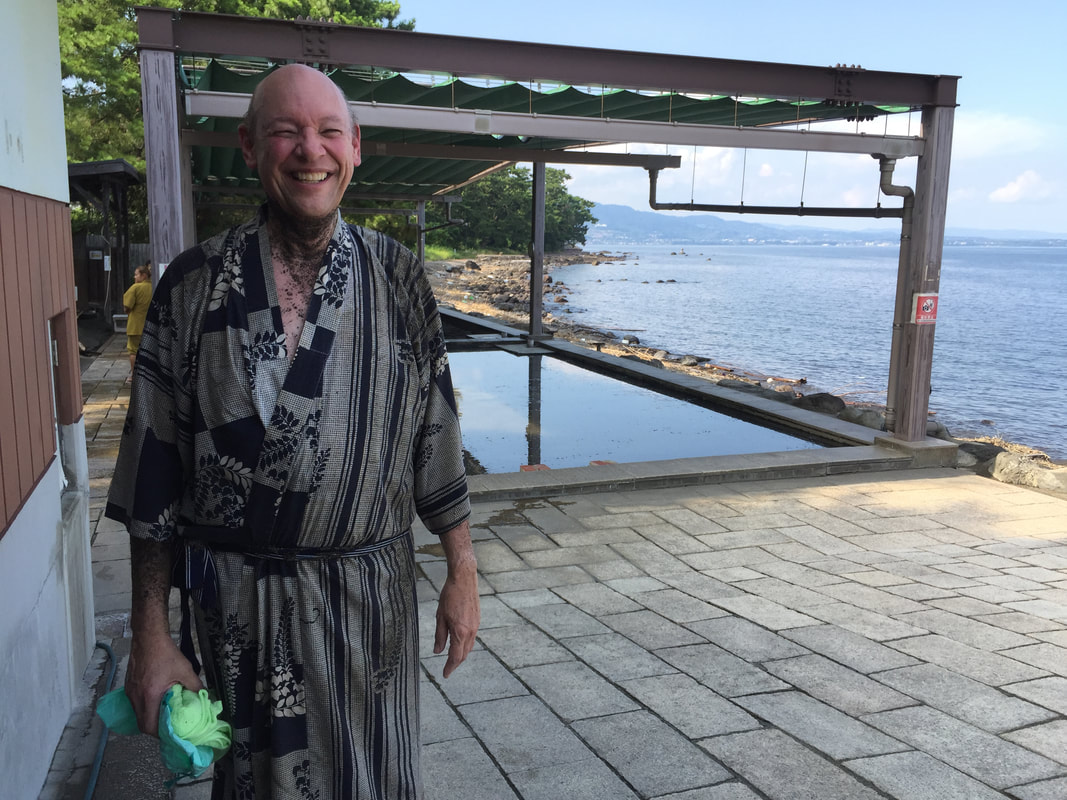

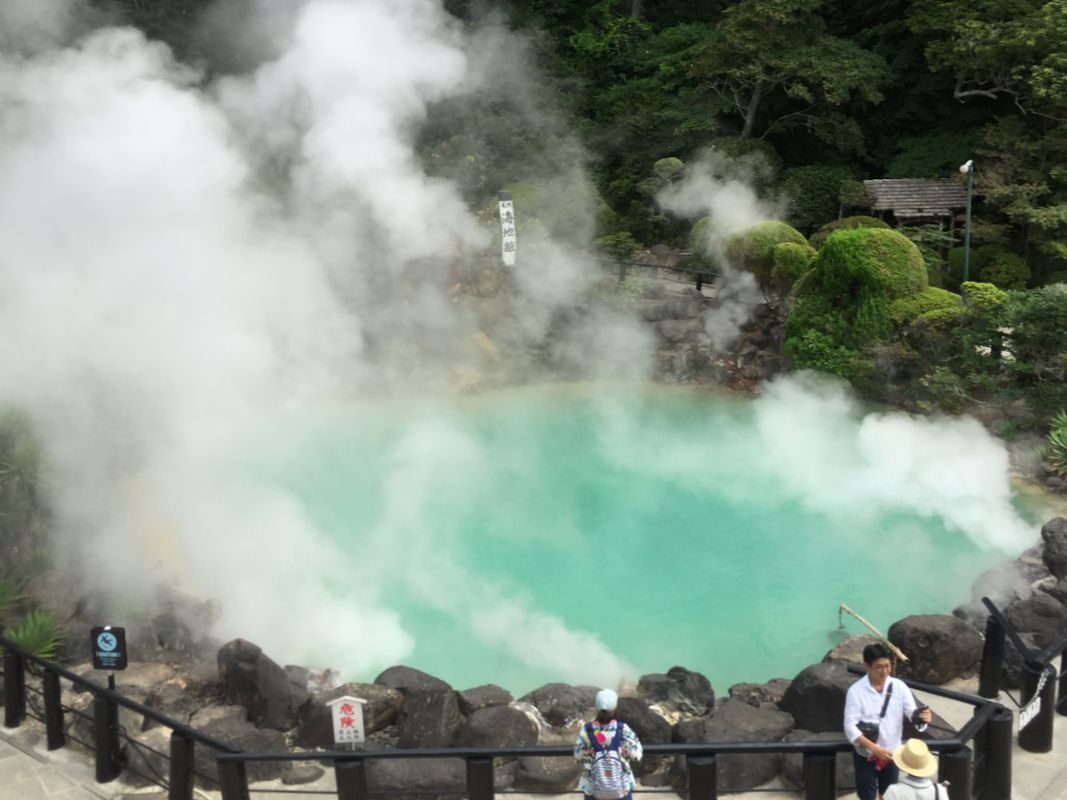
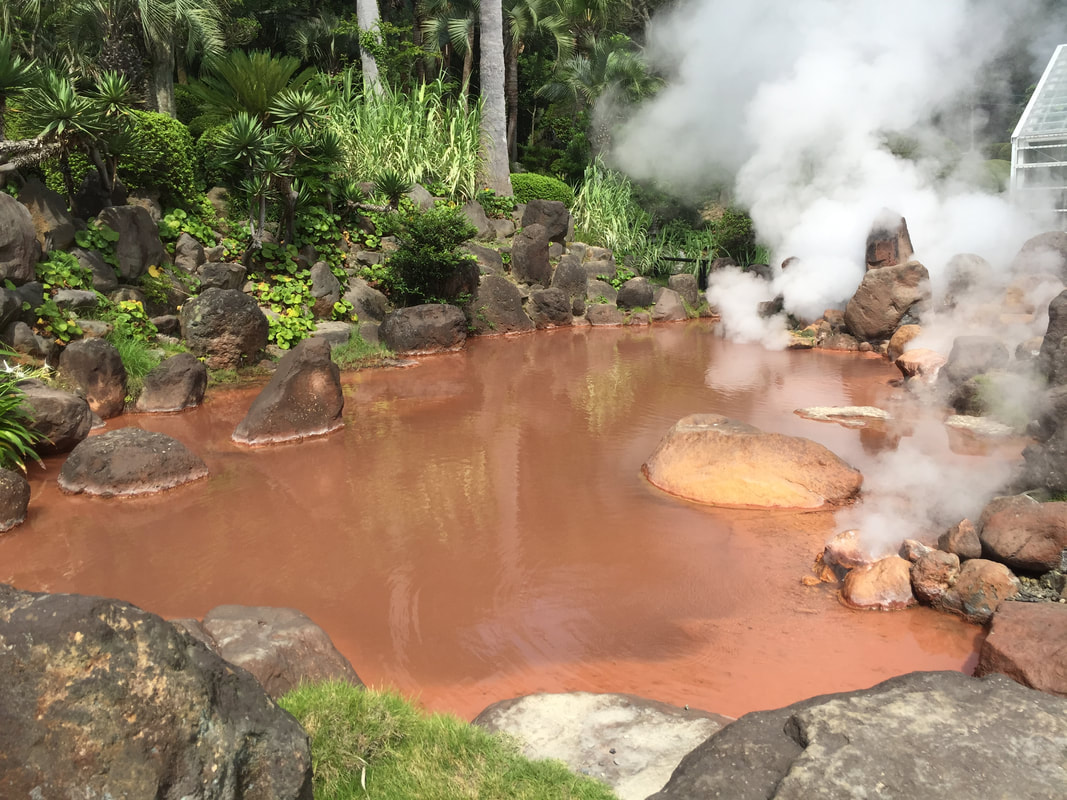
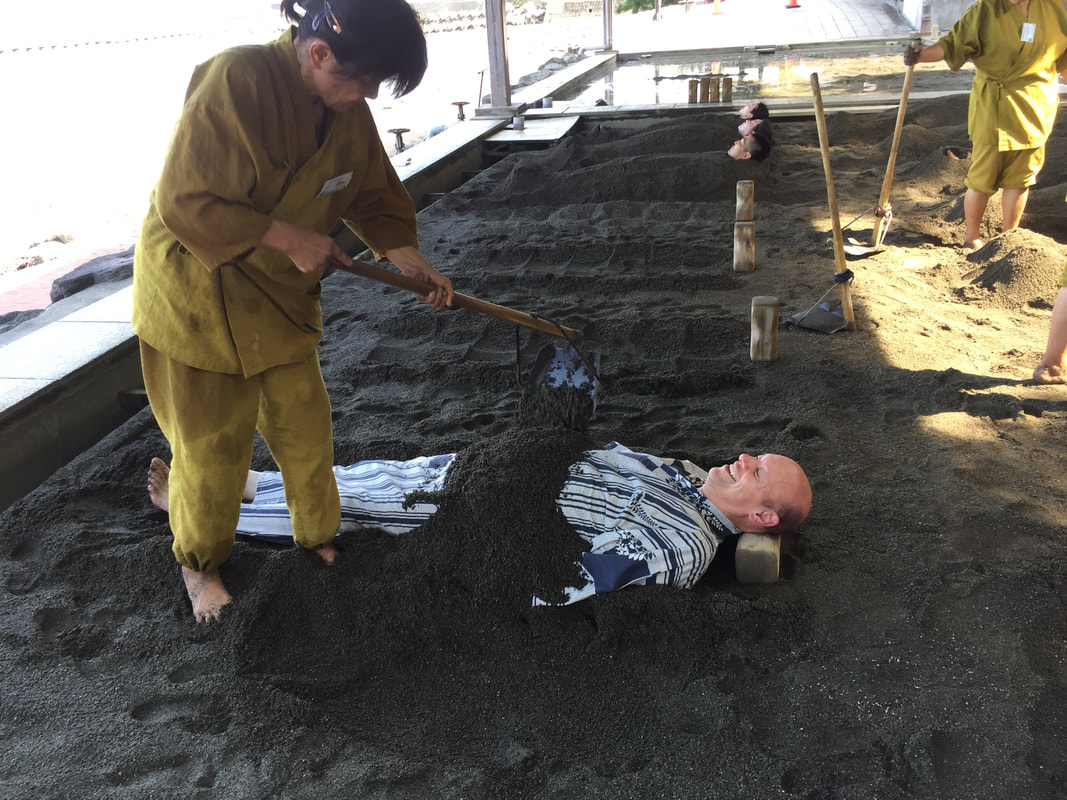
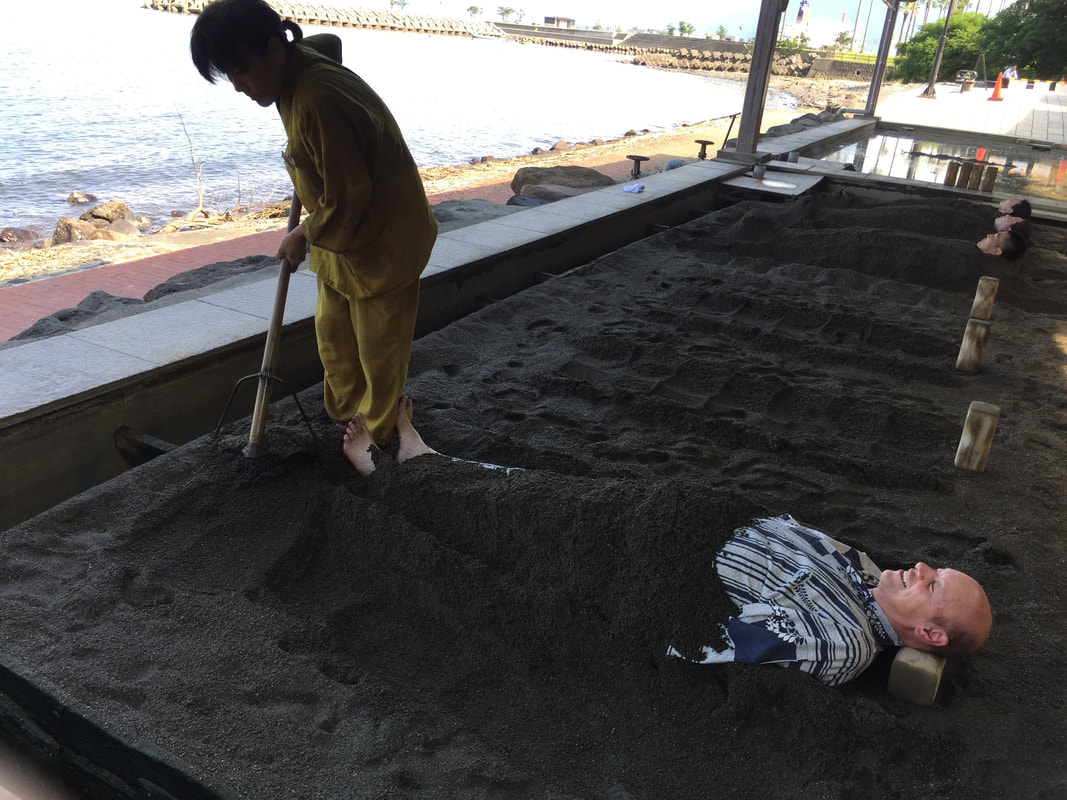
 RSS Feed
RSS Feed